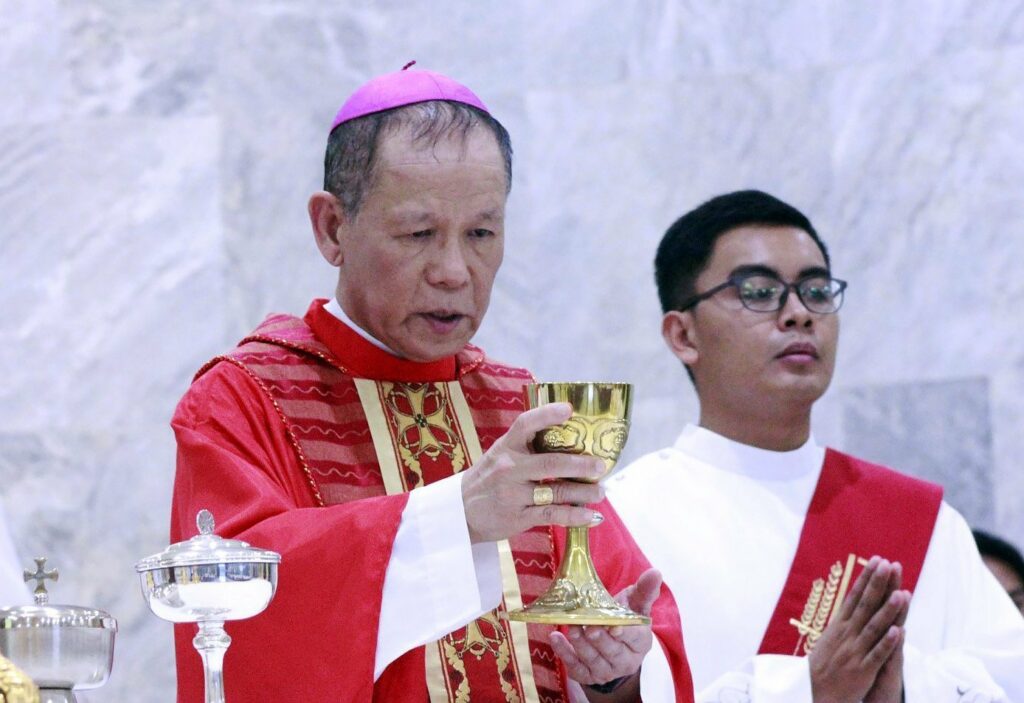VATICAN — Despite quickly shifting travel restrictions in place during the global pandemic, the majority of cardinals-designate were planning to attend the Vatican ceremony to receive their red hats and cardinal’s rings.
Several have had to plan ahead to prepare for the big day; for example, Cardinal-designate Wilton D. Gregory of Washington arrived in Rome early so he could quarantine 10 days before the Nov. 28 ceremony.
Cardinal-designate Celestino Aos Braco, the 75-year-old archbishop of Santiago, Chile, was also quarantining as a precautionary measure, staying at the Domus Sanctae Marthae, the residence where Pope Francis lives.
Others had to plan other ceremonies as well, planning to be ordained a bishop — normally a prerequisite for priests before they are elevated to the rank of cardinal.
For example, 80-year-old Cardinal-designate Enrico Feroci, who spent 56 years as a priest in Rome, received his episcopal ordination Nov. 15 — the World Day of the Poor, a date he found significant because of his many years serving the poor through his parishes and as a former director of Rome’s Caritas.
Cardinal-designate Mauro Gambetti, a 55-year-old Conventual Franciscan and former custos of the Sacred Convent of Assisi, was to have his episcopal ordination Nov. 22 in the Basilica of St. Francis of Assisi.
The one priest who requested and received a dispensation from the pope to not be ordained a bishop was Cardinal-designate Raniero Cantalamessa, the 86-year-old preacher of the papal household.
The Capuchin priest said he wanted to shun all signs of a higher office, preferring to be laid to rest upon his death in the robes of a Franciscan, he told the Diocese of Rieti’s website, ChiesaDiRieti.it.
The office of a bishop, he said, “is to be a shepherd and a fisherman. At my age, there is little I can do as a ‘shepherd’ but, on the other hand, what I can do as a fisherman is to keep proclaiming the word of God.”
He said the pope asked him once more to deliver this year’s Advent meditations, which were to be held in the Vatican’s Paul VI audience hall, so attendees — Pope Francis and top Vatican officials — could maintain the required distancing.
Seven of the 13 newly named cardinals live in Italy or work in the Roman Curia, so getting to Rome is less complicated, even despite the advanced age of some, like 80-year-old Cardinal-designate Silvano M. Tomasi, a former nuncio Pope Francis recently named as his special delegate to the Sovereign Military Order of Malta.
Other Italians include Cardinals-designate Marcello Semeraro, 72, prefect of the Congregation for Saints’ Causes and 56-year-old Paolo Lojudice, Archbishop of Siena.
Cardinal-designate Mario Grech, who is Maltese, is secretary-general of the Synod of Bishops.
The 63-year-old former Bishop of Gozo leads the list of new cardinals, and he told Gozo News that he would be making a speech on behalf of all the new cardinals at the ceremony.
He said they may visit retired Pope Benedict XVI at his residence in the Vatican gardens, and Pope Francis would celebrate Mass with the new cardinals the day after the consistory for the first Sunday of Advent, Nov. 29, in St. Peter’s Basilica.
As of Nov. 19, the Vatican had not released detailed information about the weekend events, but some cardinals-designate confirmed they were allowed to invite a maximum of 10 people to the Nov. 28 event. It was expected the traditional meet-and-greet gatherings for new cardinals and well-wishers at the Paul VI hall or the Apostolic Palace would not be held.
According to canon law, cardinals are created by the pope’s decree and church law does not insist that the new cardinal be present, although traditionally the consistory includes a public profession of faith by the new cardinals.
Of the 13 new cardinals, only two told news outlets ahead of time that they would not be coming. The cardinals-designate were given the option to not make the trip and instead receive their insignia in their home country.
Although they wanted to attend the ceremony, Cardinals-designate Jose F. Advincula of Capiz, Philippines, 68, and Cornelius Sim, apostolic vicar of Brunei, 69, both canceled their trips to Rome due to the pandemic.
Once the consistory is held in late November, there will be 128 cardinals under the age of 80 and eligible to vote in a conclave. Pope Francis will have created just over 57% of them. Sixteen of the cardinals created by St. John Paul II will still be under 80 as will 39 of the cardinals created by Pope Benedict XVI; Pope Francis will have created 73 of the electors.

